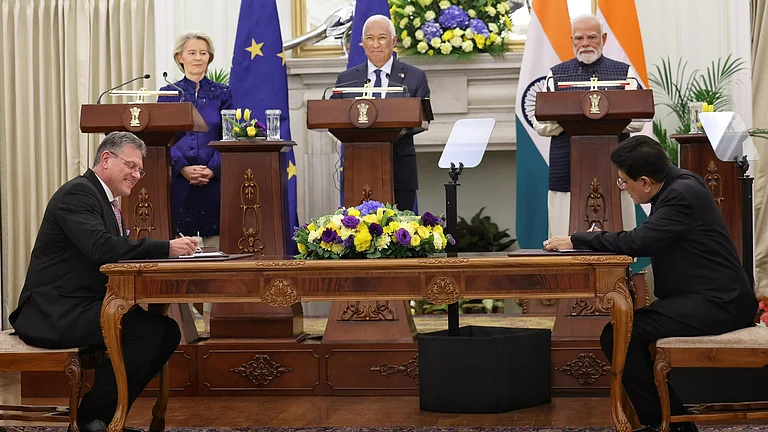Prime Minister Narendra Modi concluded a landmark state visit to the United Kingdom today with the signing of the India–UK Free Trade Agreement (FTA), a deal hailed as a game‑changer by both governments and industry leaders.
The accord aims to double bilateral trade to $120 billion by 2030, reduce tariffs, and unlock new avenues for investment and collaboration across key sectors.
PM Modi traveled with a 16‑member business delegation led by Sunil Bharti Mittal, Founder and Chairman of Bharti Enterprises and Co‑Chair of the India‑UK CEO Forum.
Organized by the Confederation of Indian Industry (CII), the delegation engaged UK policymakers and corporate chiefs on skills mobility, digital transformation, sustainability, and healthcare. “This agreement establishes a modern, forward‑looking partnership that will stimulate innovation, ease market access, and foster investment,” Mittal said.
He noted that over 970 Indian firms already operate in the UK, contributing £1.17 billion in corporate taxes and employing 1.1 million people.
Negotiated over two years, the FTA introduces significant tariff cuts on labour‑intensive exports such as textiles and apparel, leather goods, gems and jewellery, and marine products, sectors where Indian manufacturers enjoy a competitive edge. It also provides a framework for tariff‑free or preferential access in advanced manufacturing, clean energy technologies, life sciences, and digital services, leveraging the UK’s strengths in innovation and finance alongside India’s manufacturing scale and growing domestic demand.
A pivotal feature of the agreement is a reciprocal Social Security Arrangement, allowing Indian professionals in the UK to maintain home‑country pension contributions for up to three years, a concession closely aligned with CII’s earlier recommendation for five‑year exemptions. This provision is expected to boost short‑term assignments and long‑term mobility of skilled talent between the two countries.
The FTA further reinforces the Technology Security Initiative launched in 2024, expanding cooperation on critical and emerging technologies related to national security and economic growth. CII Director General Chandrajit Banerjee called the pact “a defining moment in our bilateral relationship,” underscoring its role in “inclusive growth, economic resilience, and industrial transformation.”


































